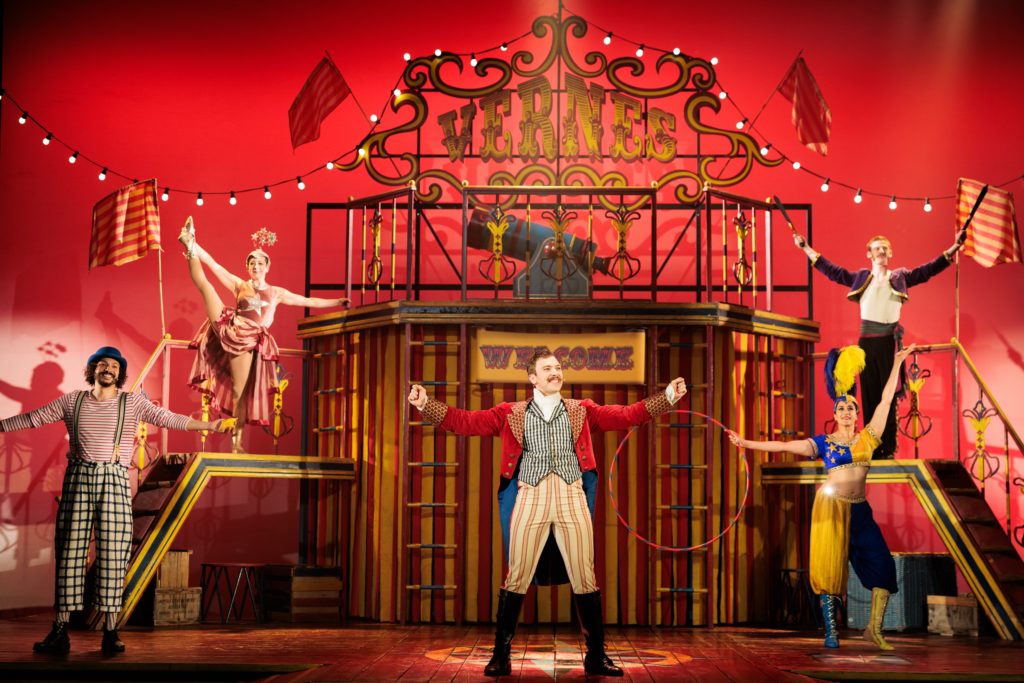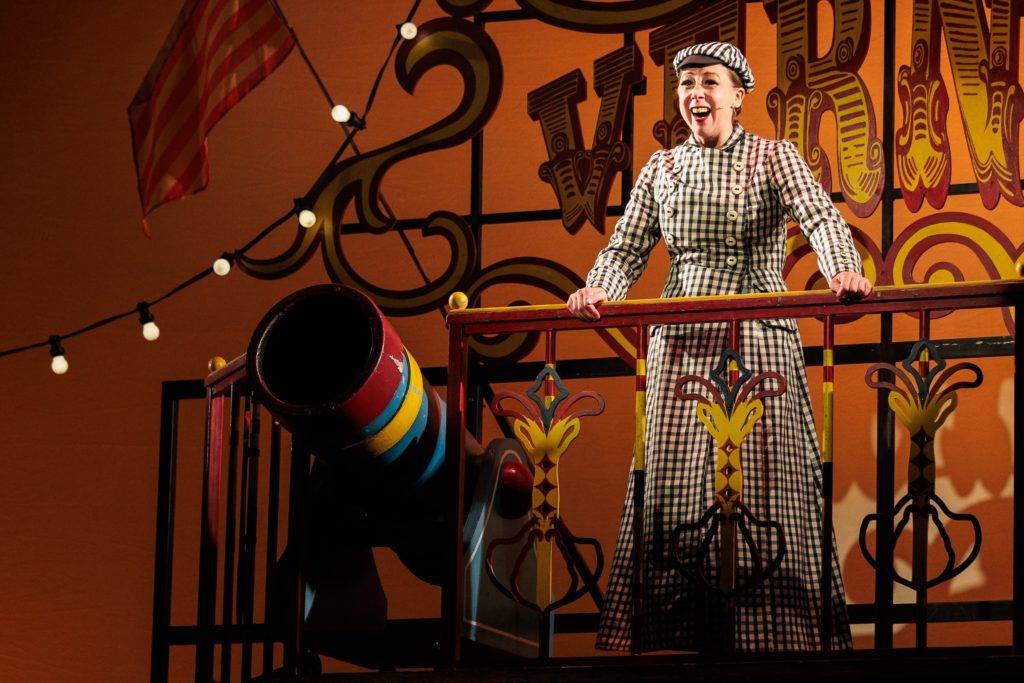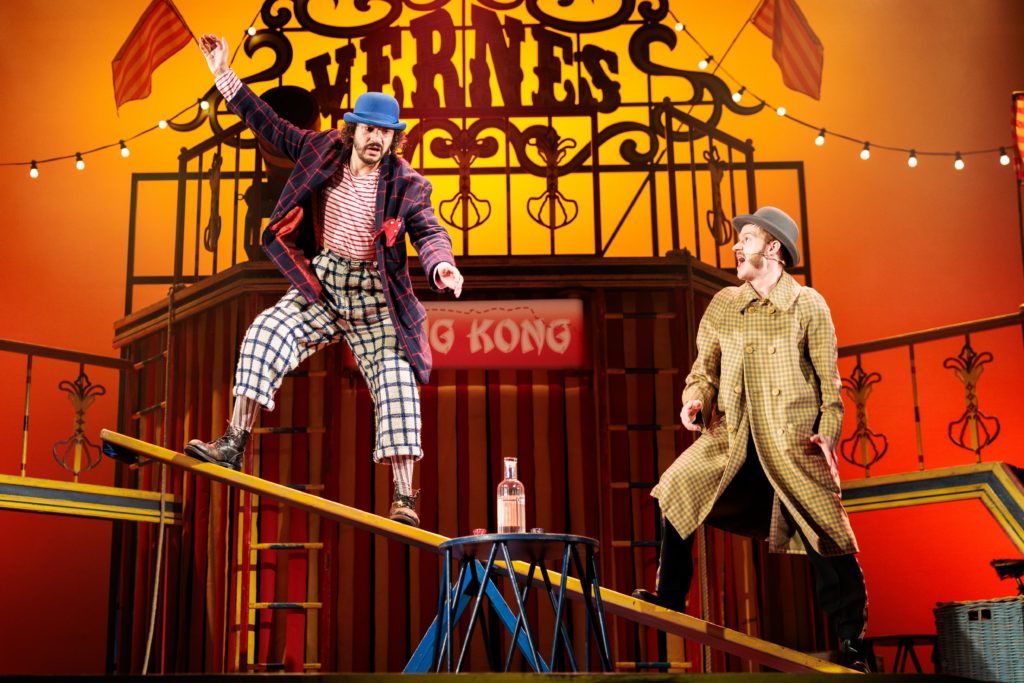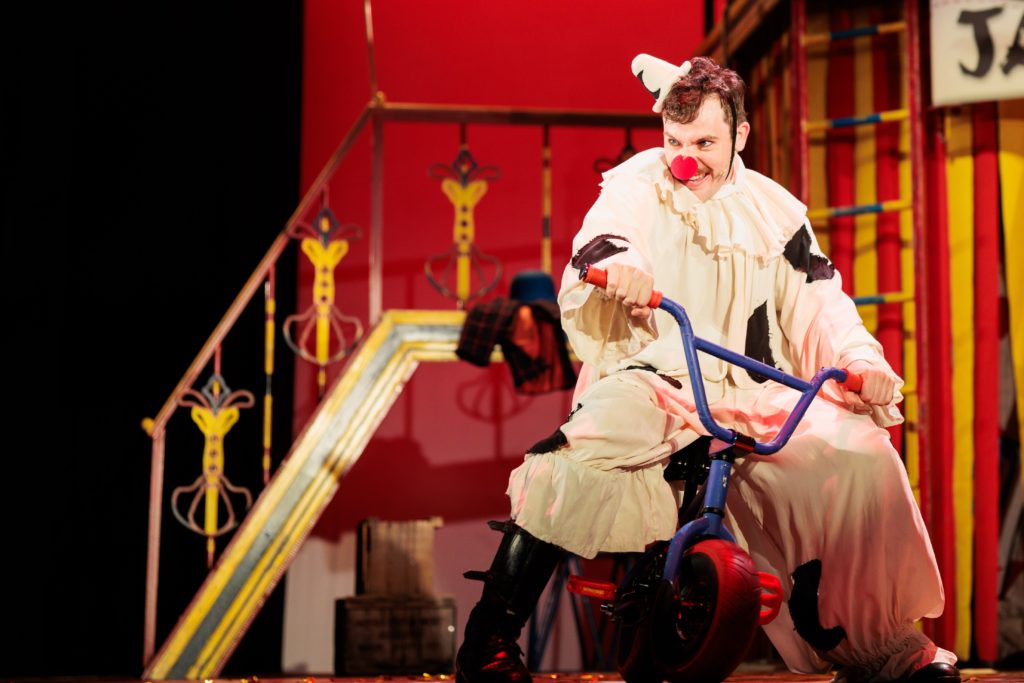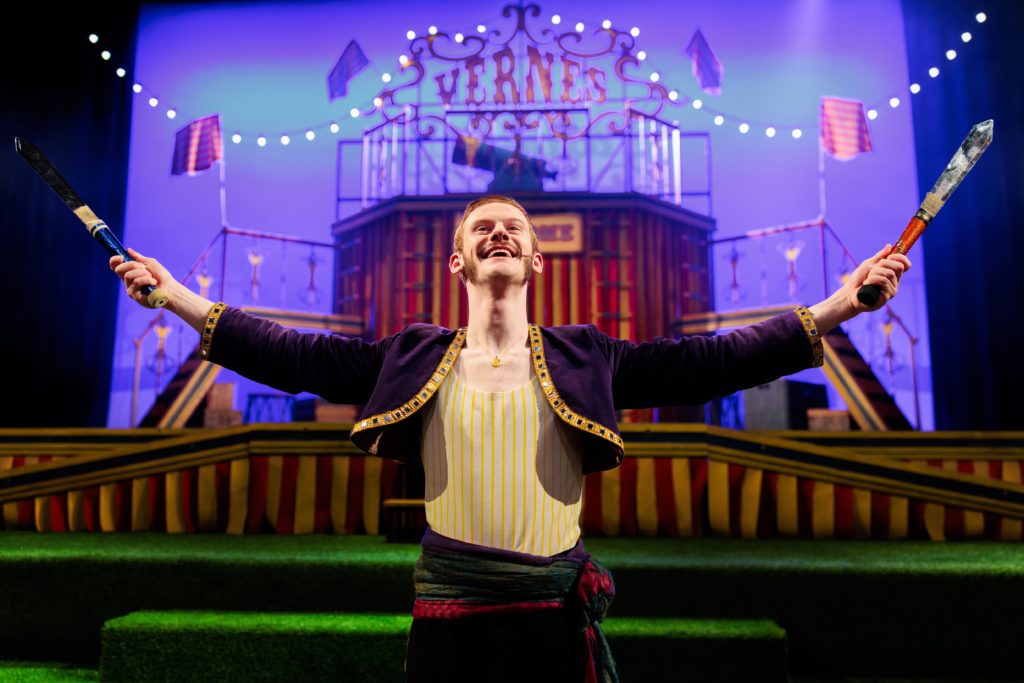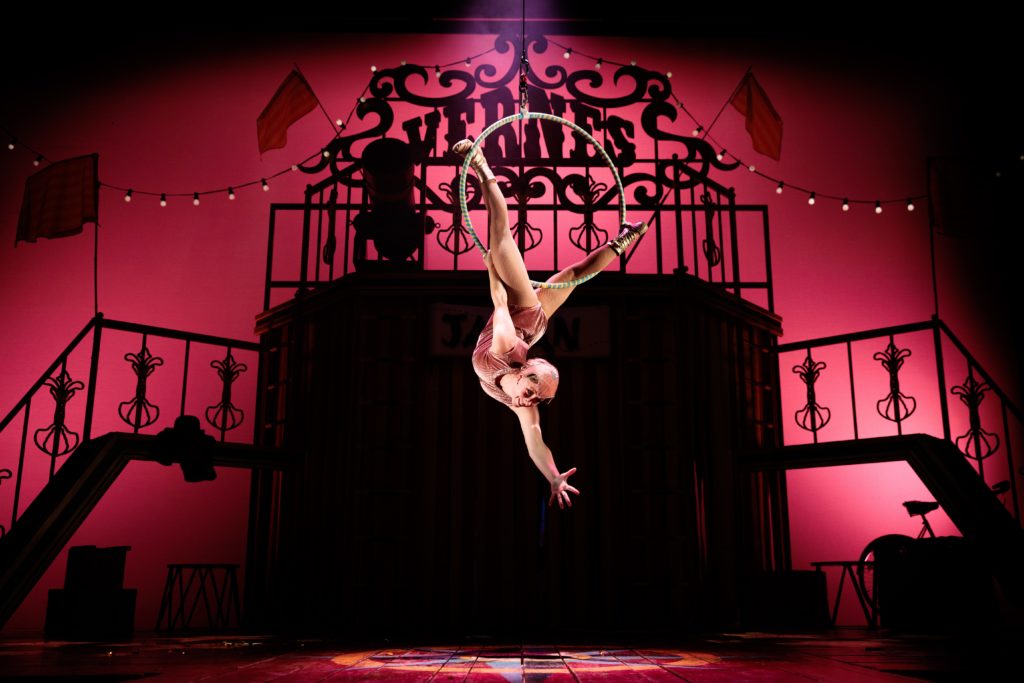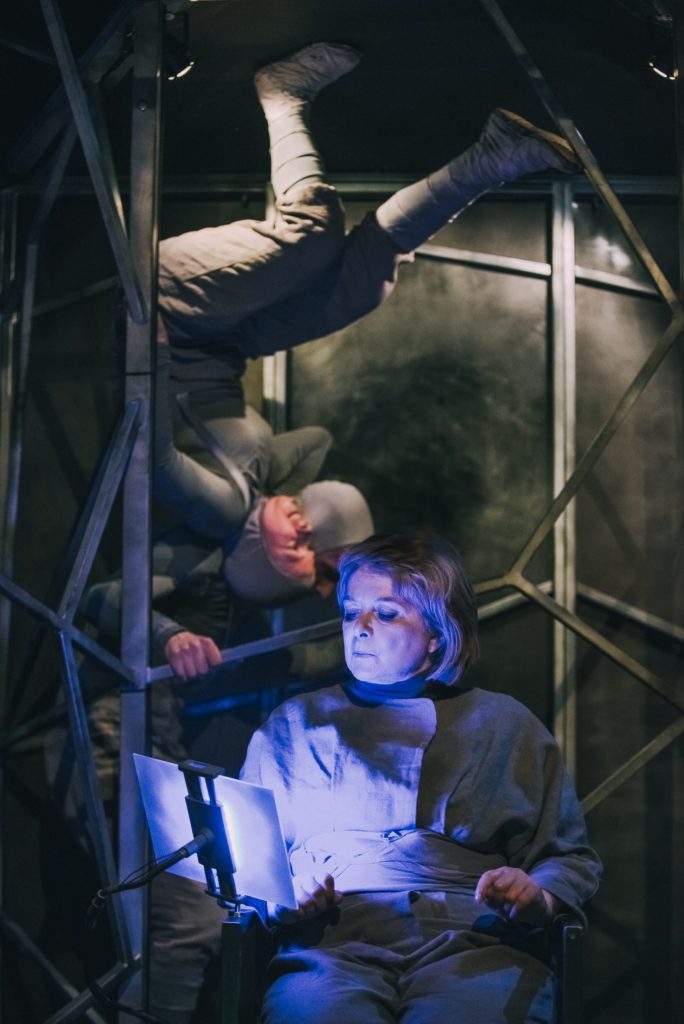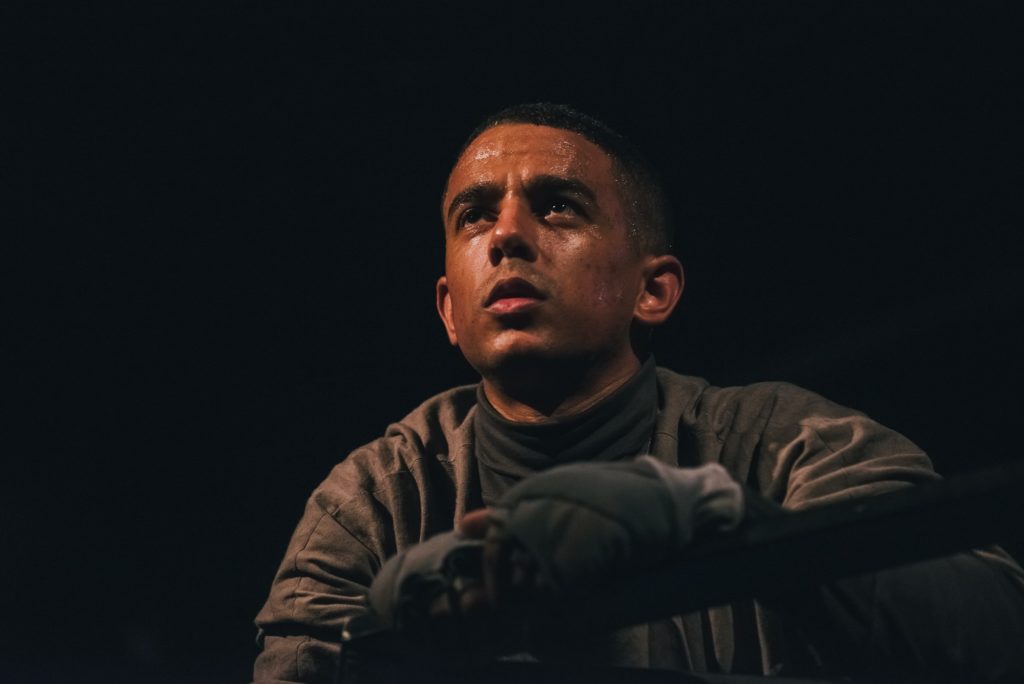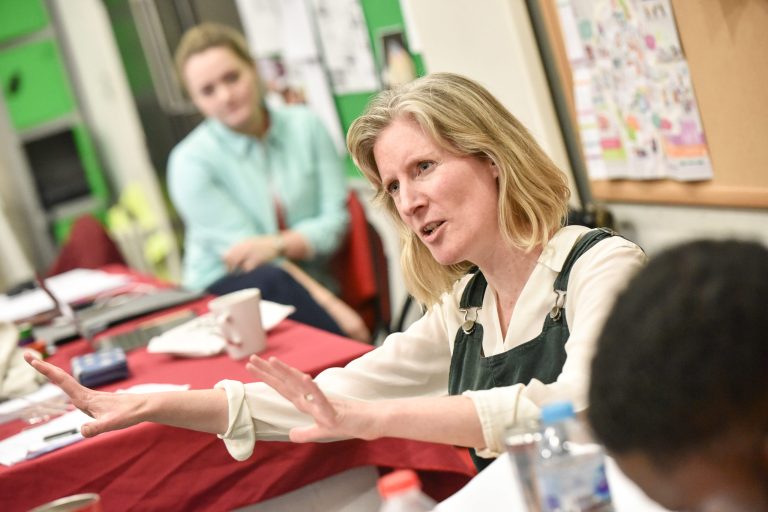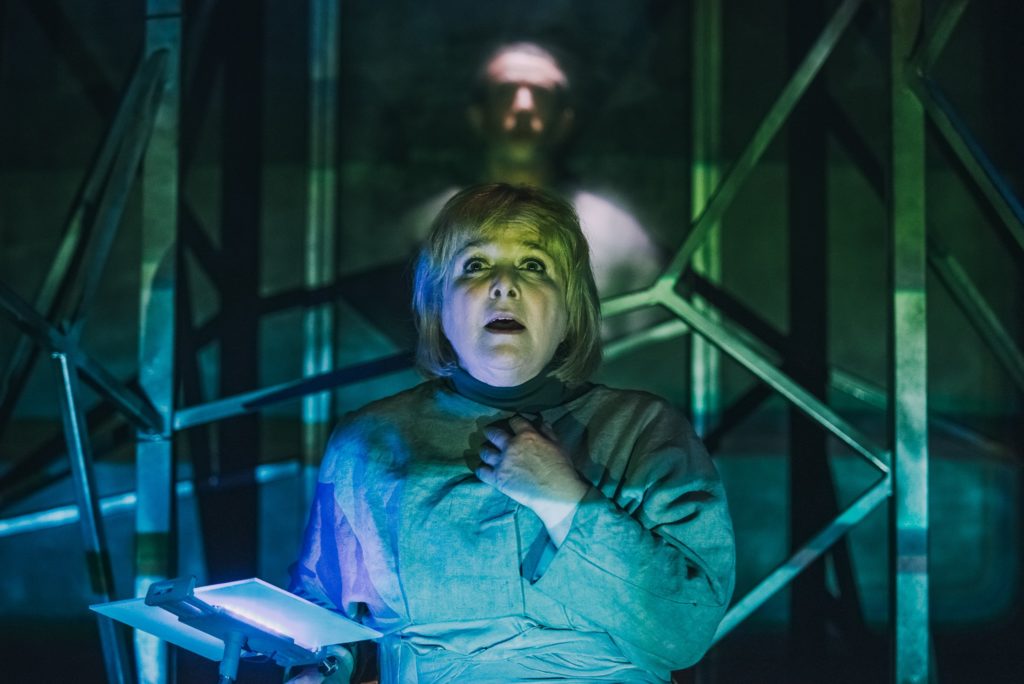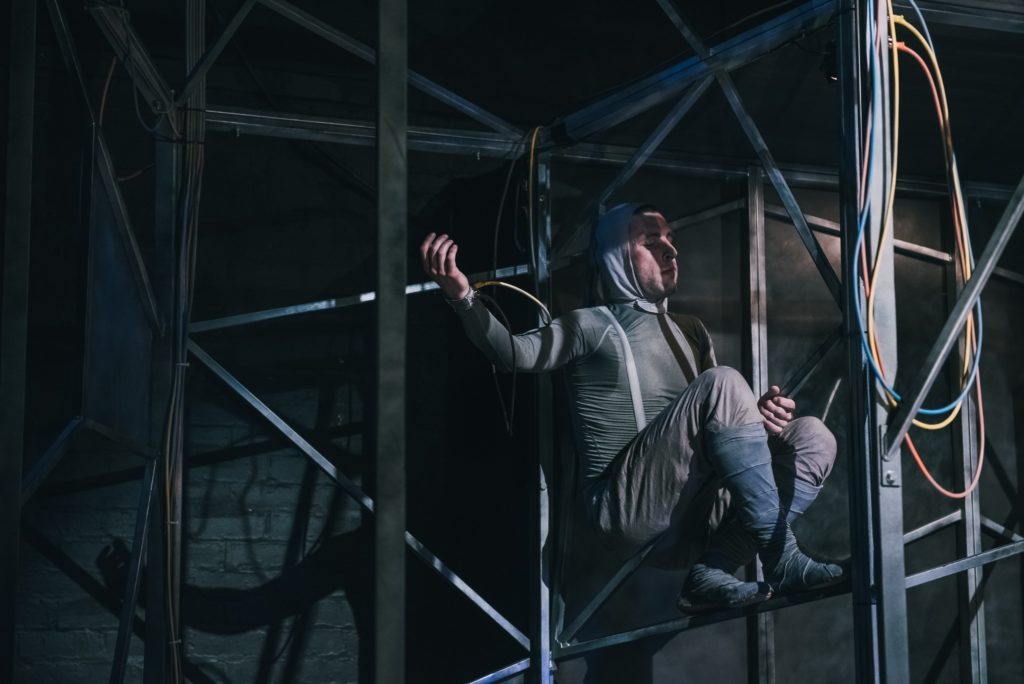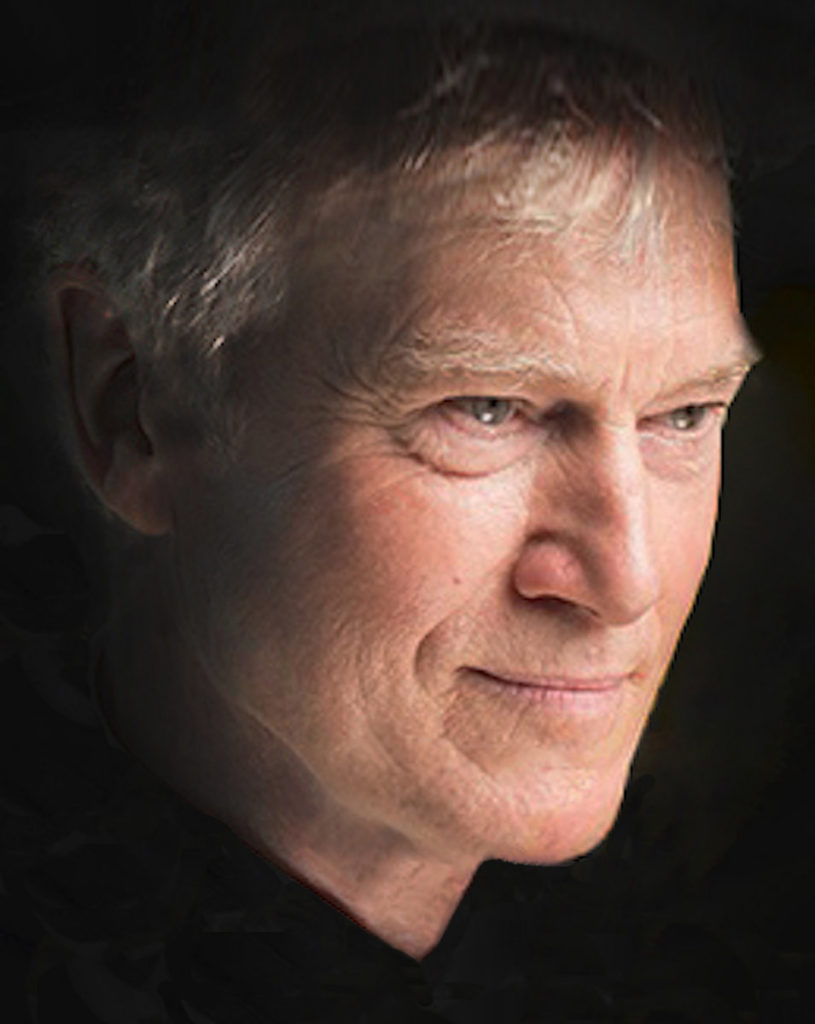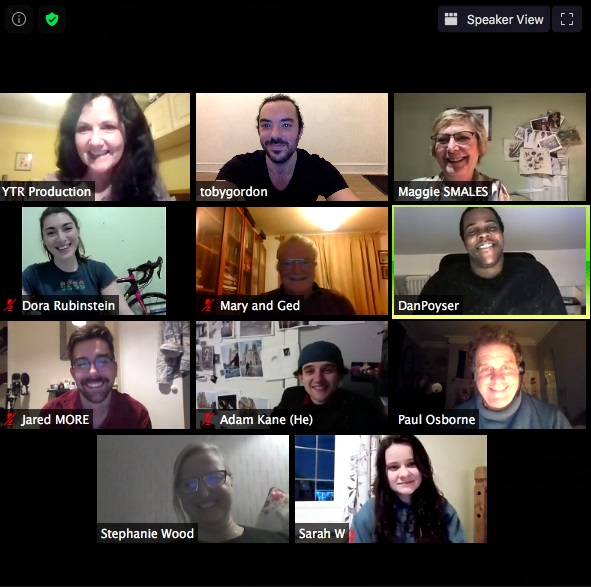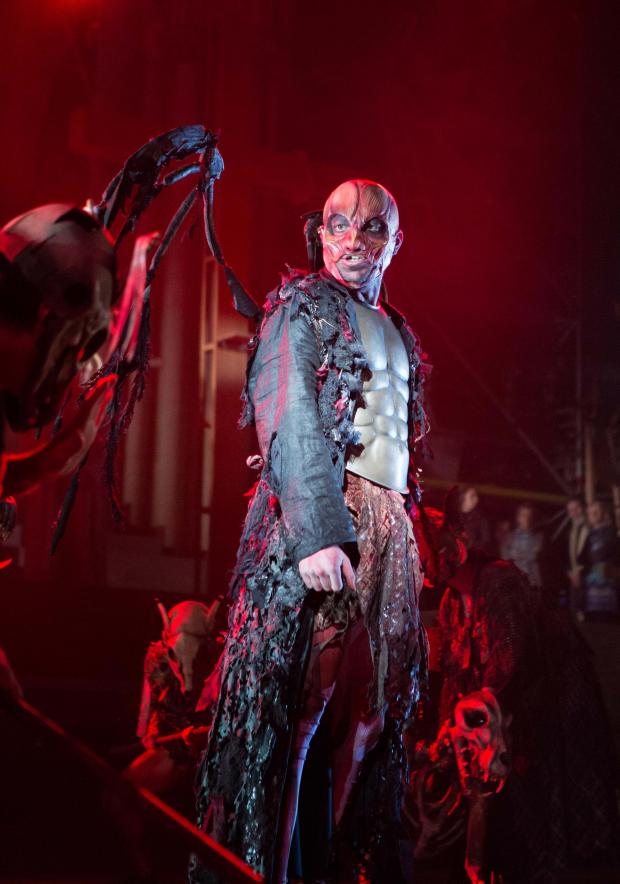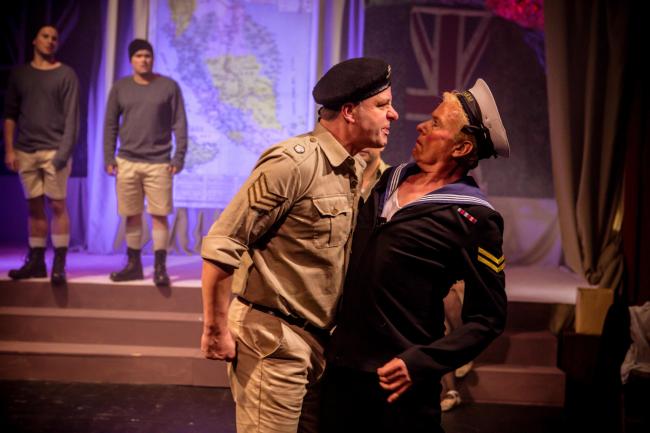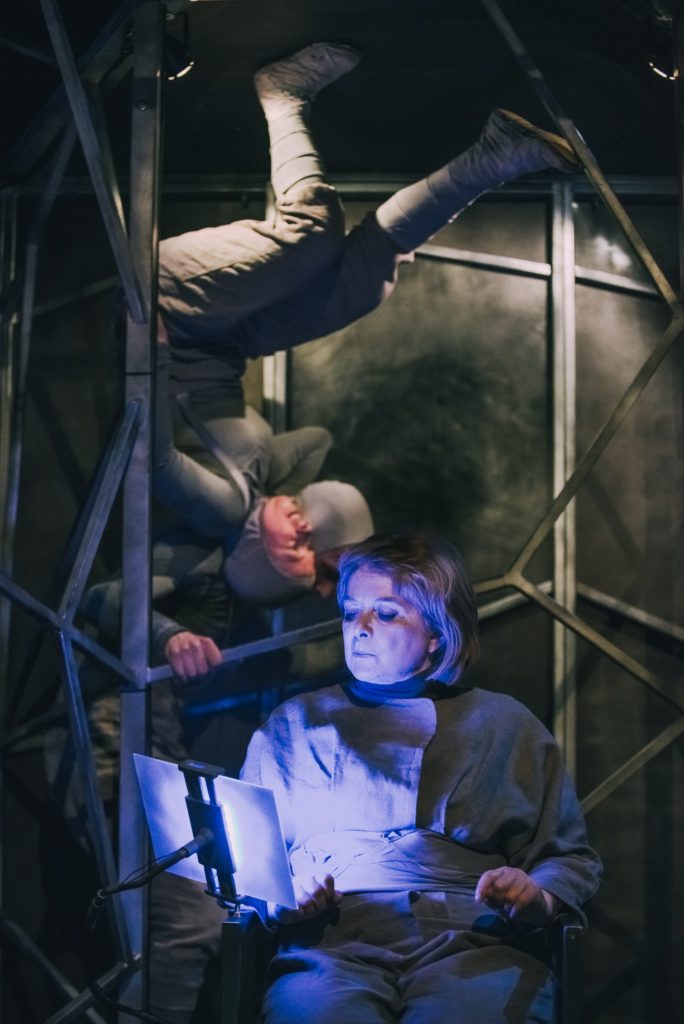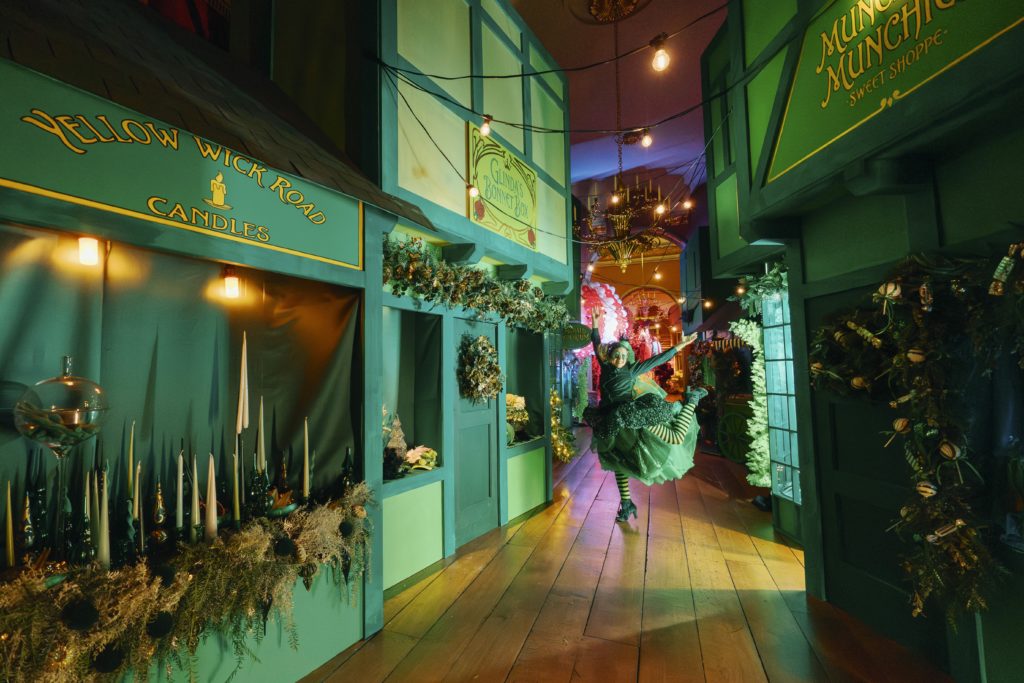
York actress Maria Gray puts on a dazzling display of green in Emerald City High Street in the Long Gallery at Castle Howard. Picture: Tom Arber
CLW Event Design began working on The Wonderful Wizard Of Oz as long ago as January, and now the Yellow Brick Road is stretching through the rooms and corridors of the transformed North Yorkshire country house to dazzling effect.
Headed up by Charlotte Lloyd Webber and York-based Adrian Lillie, working in tandem with Leeds theatre company Imitating The Dog, this immersive experience is on the grandest scale yet since Castle Howard first partnered with CLW Design in 2017.
Huge set pieces were fabricated and built on the Castle Howard Estate before being moved into the house in an installation process that took ten days to complete, requiring 30,000 baubles to be put on display, while the creative team has reused and recycled products where possible and favoured more sustainable materials such as paper and glass.
There really is no place like this home, now dressed in set pieces, decorations, floristry, projections, lighting and soundscapes that culminate in the show-stopping Emerald City High Street in the Long Gallery, with its life-size fabricated shop fronts inspired by York and Malton’s Shambles (or Harry Potter’s Diagon Alley, if you insist).
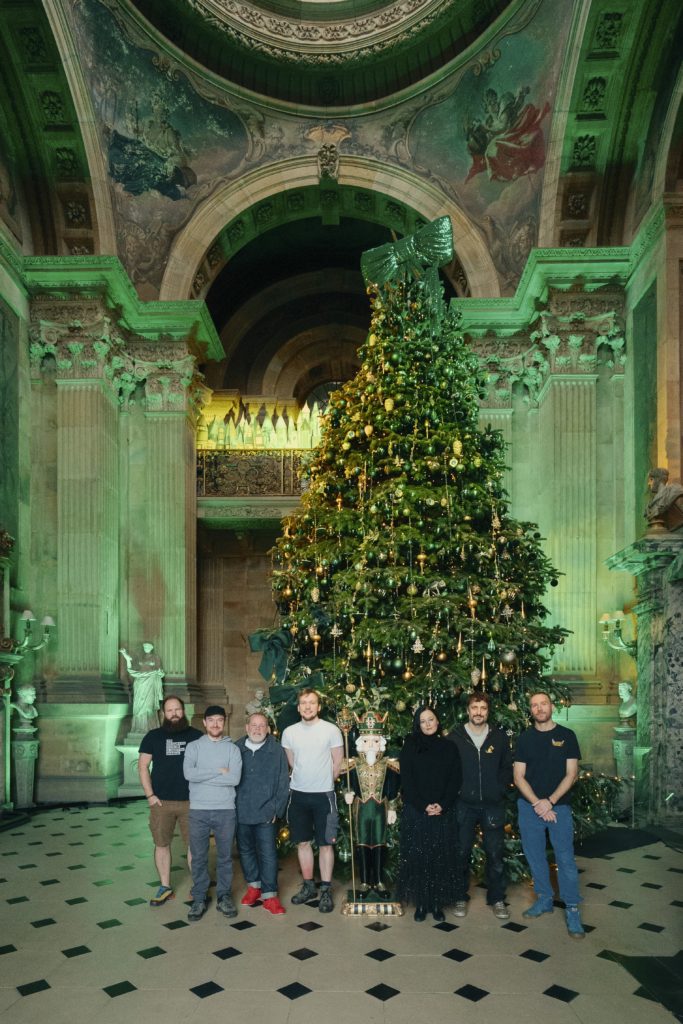
The Wonderful Wizard Of Oz creative team in the Great Hall at Castle Howard, led by CLW Event Design’s Charlotte Lloyd Webber and Adrian Lillie. Picture: Tom Arber
Look out too for Castle Howard’s famous 28-foot Christmas tree that sparkles in the Great Hall, installed by a team of 30 using a specialist forklift and winch system.
Unique musical compositions accompany each room in the house, alongside the soundscapes that bring the narrative from the original book to life.
The momentum provided by Wicked and now this week’s opening of Wicked: For Good made The Wizard Of Oz the ideal choice for the 2025 show; momentum further buoyed by Castle Howard receiving the Historic House Restoration of the Year award at Sotheby’s for its 21st Century Renaissance project, topped off by the unveiling of the lost Tapestry Drawing Room.
The journey down the yellow brick road is all the more magnificent for this once-in-a-generation transformation as Castle Howard enters its busiest time of the year, when as many as 100,000 visitors will enter the building: one third of the year’s total, condensed into the Christmas season.
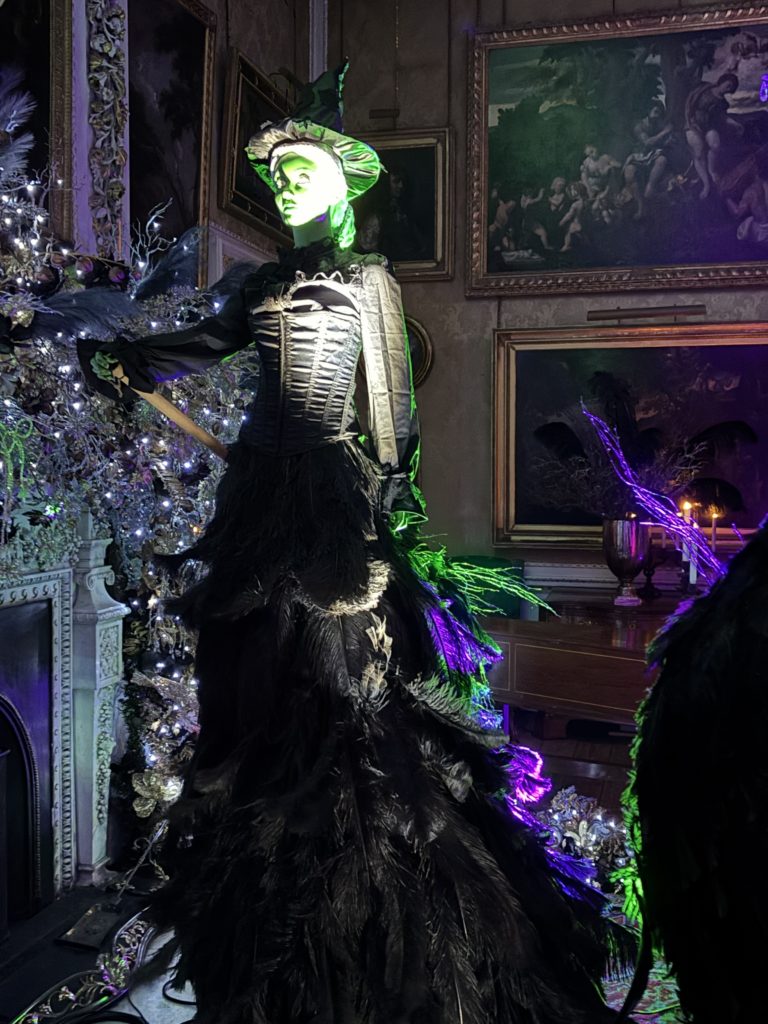
The Wicked Witch of the West in Christmas at Castle Howard with The Wonderful Wizard Of Oz. Picture: Celestine Dubruel
“We’re very much thinking about the house whenever we decide what to do, and this time we’ve gone back to L Frank Baum’s original 1900 story, which seems to fit really well with the house, designed by playwright John Vanbrugh,” says Adrian.
“So some things will be new to you that differ from the 1939 film. Like the slippers being silver, not ruby, and we feature all four witches [whereas the film combined the Good Witch of the North and Glinda the Good Witch of the South into one character, Glinda].
“We’ve also played with colours, so each territory has a tone, such as blue for the Munchkins, yellow for the Winkies [as opposed to green in the Judy Garland film], red for the Quadlings, and white for Glinda, the Good Witch of the North.”
In the original story too, everything looked green in the Emerald City as everyone was equipped with green glasses to look through, another detail acknowledged amid The Wonderful Wizard Of Oz props.
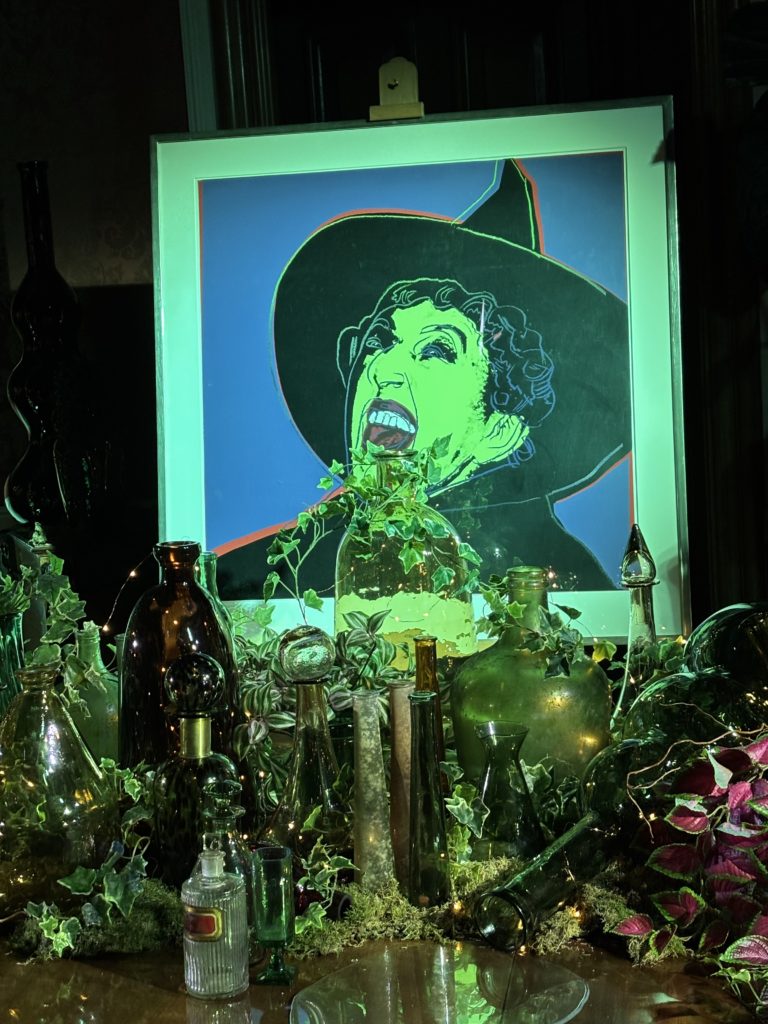
The Wicked Witch Of The West in an Andy Warhol-style portrait in The Wonderful Wizard Of Oz at Castle Howard. Picture: Celestine Dubruel
CLW Event Design continues to set itself ever bigger challenges for the Christmas season, this year expanding its portfolio from three to six sites: Castle Howard, Bamburgh Castle; Kensington Palace, Polesden Lacey, Beaulieu, and Chiswick House.
Castle Howard remains the jewel in the crown. “We are always developing our team, and in the week leading up to Castle Howard, we had 18 people working here, and 23 on the night before we opened, including the Imitating The Dog team,” says Adrian. “What I’m most proud of is that our team has really delivered. I was nervous at the beginning as to whether we could do it, but we’ve pulled it off.”
Charlotte adds: “I have to say the most spectacular achievement is the Emerald City High Street that transforms the Long Gallery into The Wizard Of Oz’s Shambles.”
Detail is important and so is humour, typified by Imitating The Dog’s soundscape. “We do have our Dorothy with a North American accent, but just as we had a Yorkshire-voiced Peter Pan, we now have a Good Witch of the North with a Yorkshire accent,” says Charlotte.
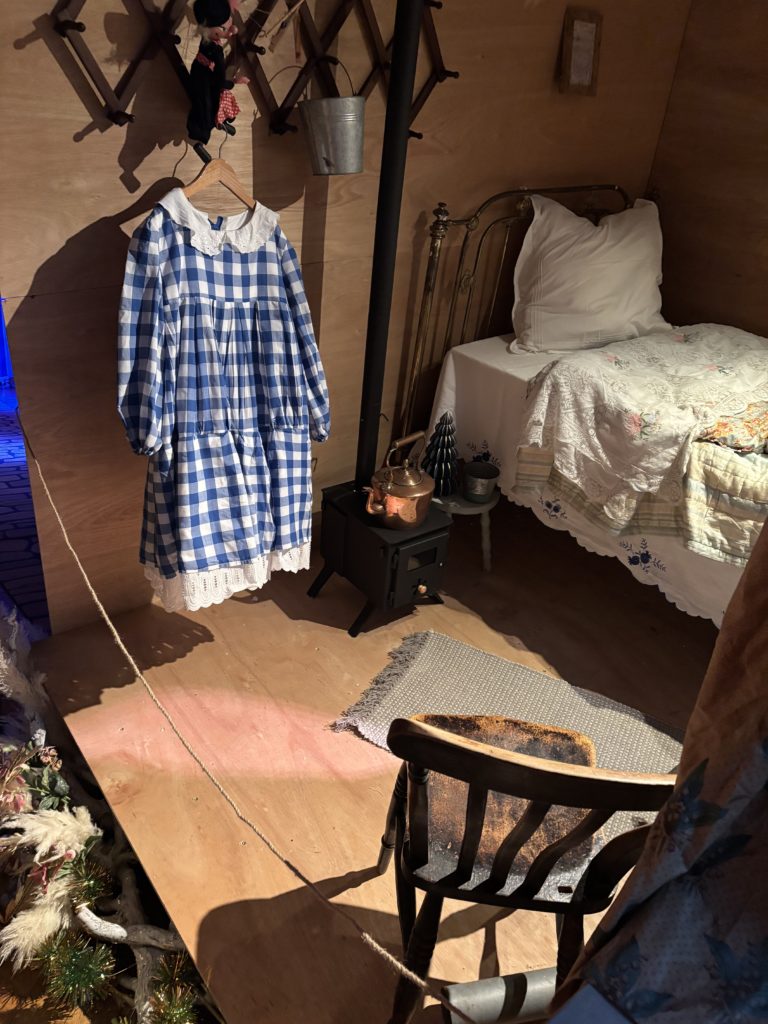
There’s no place like home: Dorothy’s bedroom in The Wonderful Wizard Of Oz at Castle Howard. Picture: Celestine Dubruel
The Wonderful Wizard Of Oz draws on source material aplenty. “There are more than 14, maybe 17 books in L Frank Baum’s series. I got through four books, then I stopped,” says Adrian. “You have to extrapolate and you have to make sure all the magic parts are in there, but it’s good to go back to the roots and look at how it would fit into the house.
“The thing that we were very clear about from the start was that we really wanted to embrace this year’s redecoration of the house to integrate it into our design and we have certainly done that.”
Summing up this year’s wizard show, and the creativity that went into it, Adrian says. “Out of the six Christmas shows that we’ve done this year, this would always be the project that we would be working on up to the last minute. It’s just the scale of this house and our ambition as artists that demands we do that.”
CLW Event Design’s The Wonderful Wizard Of Oz dazzles at Castle Howard, near York, until January 4. Tickets: castlehoward.co.uk.
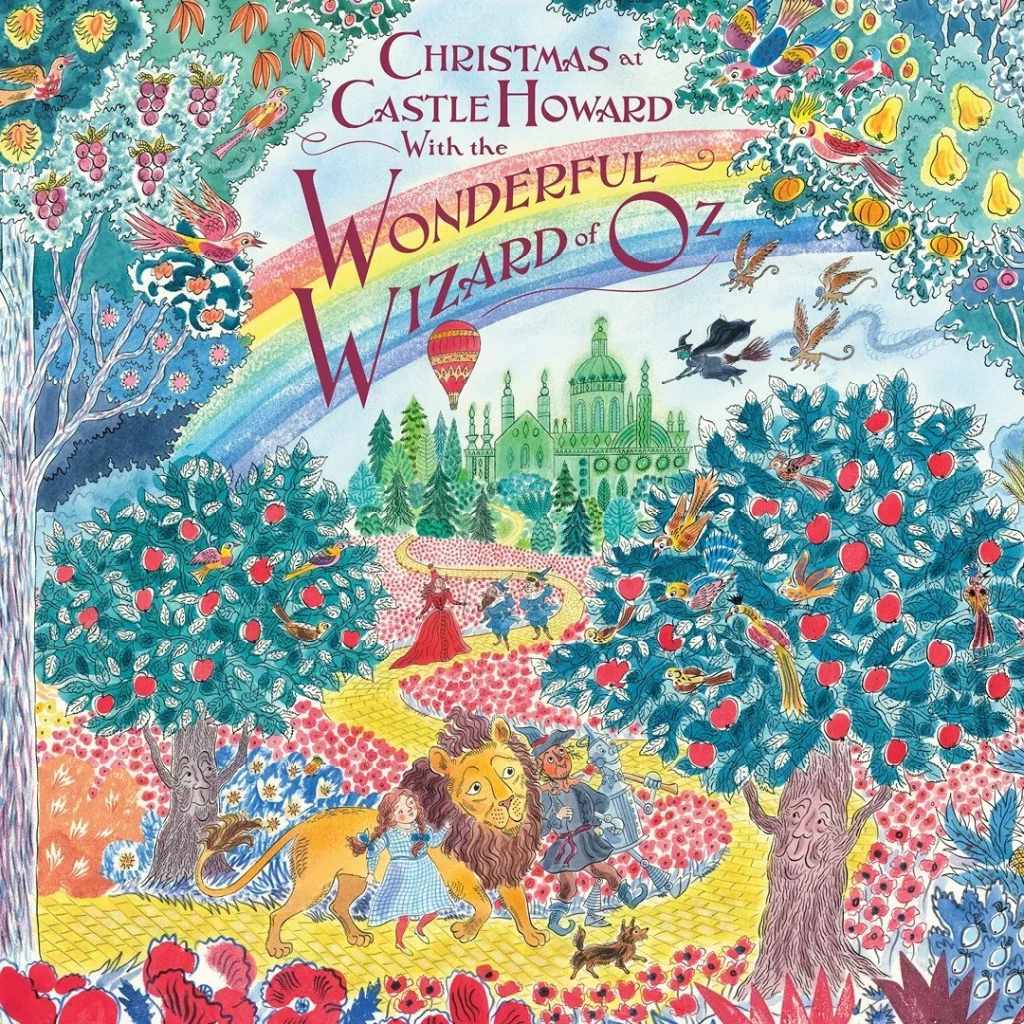
The poster for Christmas at Castle Howard with The Wonderful Wizard Of Oz
Christmas at Castle Howard events
Christmas at Castle Howard with the Wonderful Wizard Of Oz, in the House, until January 4
Father Christmas in the Castle, in the House, November 22 to December 24
Santa’s Grotto in the Boathouse, December 6 to 24
Oz Twilight Tours, November 28, December 5, December 12 and December 19
Wreath Making Workshops, in the Garden Centre, available selected Thursdays and Fridays, November 20, 21 and 28; December 11 and 12
Christmas Afternoon Tea, in the House, until December 31
Accessible Events
CASTLE Howard is offering an expanded series of accessible events to open The Wonderful Wizard Of Oz immersive experience to even more people, including British Sign Language- interpreted shows and Calm Sessions.
Calm Sessions
Saturday, November 15, 9.30am to 10.30am
Tuesday, November 25, 2.30pm to 3.30pm
Friday, December 19, 5.30pm to 6.30pm
Thursday, January 1, 3.30pm to 4.30pm
BSL Interpreted Session
Saturday, December 13, 11am and 3pm
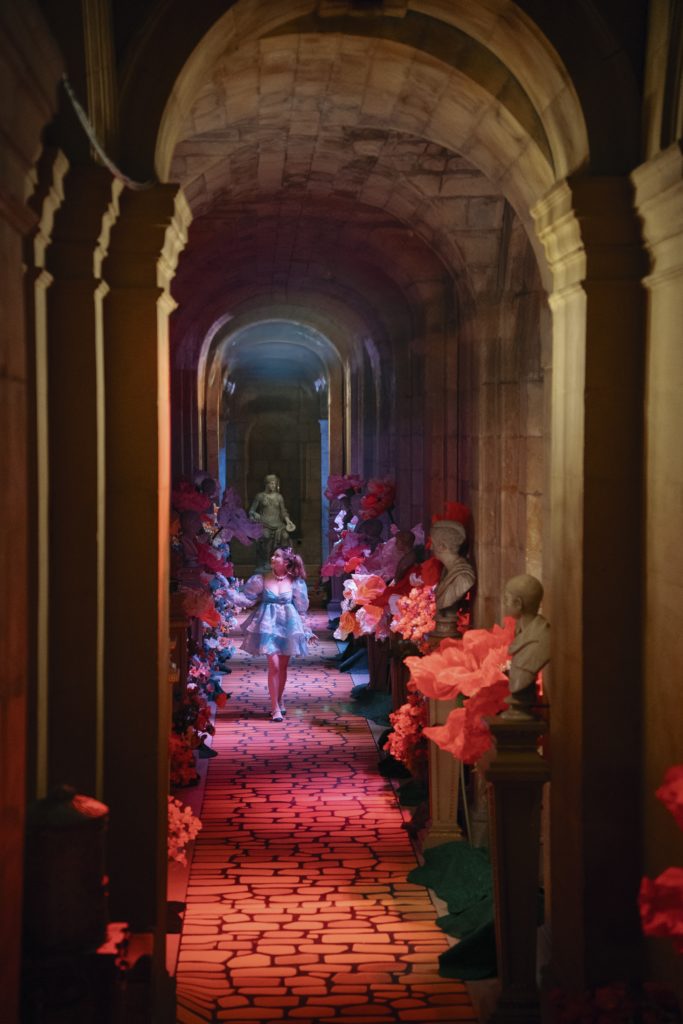
Follow the Yellow Brick Road through Castle Howard with The Wonderful Wizard Of Oz. Picture: Tom Arber
Touch Boxes
AVAILABLE in select rooms as part of the Christmas at Castle Howard with The Wonderful Wizard Of Oz experience. Touch boxes are sensory objects creatively designed to tell the story of the space and are available for anyone who would like to use them as part of their experience. Available to everyone on the day of their visit.
Father Christmas in the Castle
Relaxed performance: Friday, December 19, 6.30pm
Santa’s Grotto in the Boathouse
Relaxed performance: Saturday, December 6, 4.40pm
BSL-interpreted performance: Saturday, December 13, 10am
Did you know?
CASTLE Howard has employed 100 additional Christmas staff from the area to facilitate its Christmas event, on top of their year-round staff. They are supported by a team of 200 volunteers too.
Did you know too?
CASTLE Howard is hosting a Bettys shop in the Stable Courtyard for the duration of the Christmas event, selling confectionery, chocolates, teas and coffees. alongside Castle Howard’s Farm Shop with Christmas food-to-order service, Courtyard Café with seasonal winter menu, Garden Centre selling British-grown Christmas trees and marshmallow fire pit are open too for Christmas shoppers.
And finally
A DOCUMENTARY film crew has followed the Christmas creative team, CLW Event Design, as they prepare Castle Howard’s Christmas experience. The documentary will be broadcast in the Christmas At… spotlight on Channel 4 this winter on December 9.

